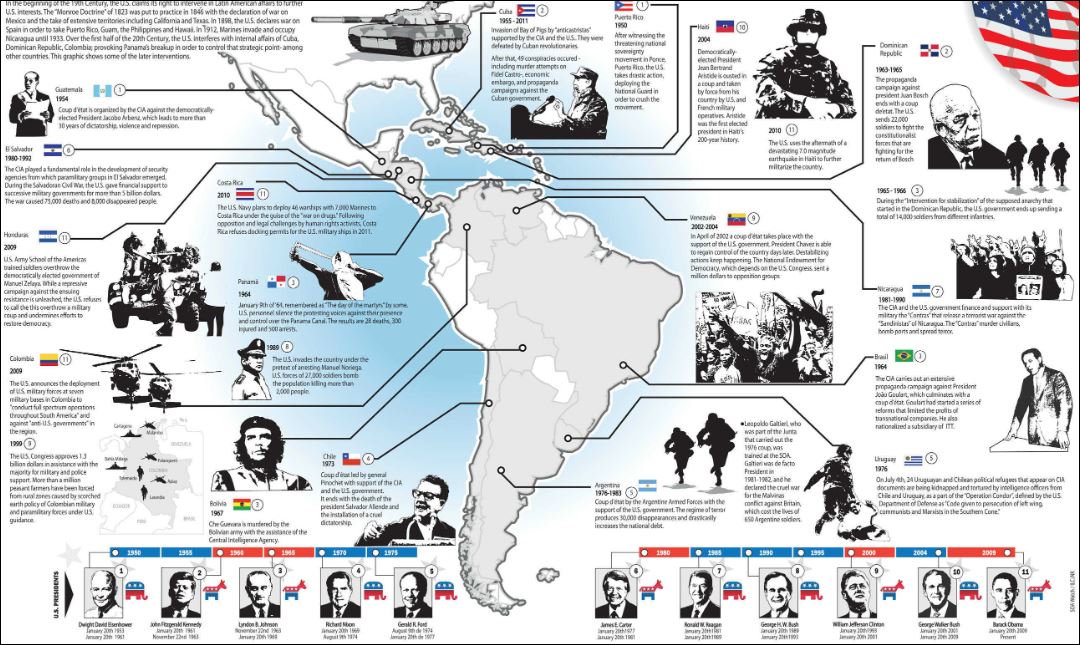Immigration has always been a sensitive topic in American politics. In recent years, American politicians have traded blame for immigration without telling the people the truth about its root cause. The fact of the matter is that American intervention in Latin America has had devastating effects on the region’s economy. The consequences of American interventions have caused economic displacement, leading many to seek opportunities in the U.S. Today we will examine the impact of American intervention on Latin America’s economy and its correlation with mass immigration.
The U.S. has intervened in Bolivia (1944, 1963, 1971), Brazil (1964), Chile (1973), Argentina (1976), Cuba (1934), El Salvador (1961, 1979), Guatemala (1963, 1982, 1983), Guyana (1953), Honduras (1963), Mexico (1913) and Panama (1941, 1949, 1969). It also has a record of failed intervention efforts in the region.
wiki
It’s no secret that Latin America has long been the victim of American intervention, which has directly impacted the region’s economy. In countries like Guatemala, Honduras, and Nicaragua, the U.S has destabilized governments, supported military coups, and amplified economic inequality, leaving millions in poverty. The “Monroe Doctrine,” which President James Monroe declared in 1823 and was later reinforced by the U.S. in 1904, essentially gave America the right to intervene in any Latin American country and protect their economic interests. The consequences of these interventions have left a long-lasting impact on these countries.
Under the guise of Democracy
One of the immediate impacts of American intervention has been economic. The overthrowing of governments or sanctioning a country under the guise of Democracy always results in job losses, reduced wages, and, finally, mass migration. Intervention always results in economic displacement and creates deep-seated poverty, forcing millions to leave their homes and seek better economic opportunities elsewhere – including the United States. Mexico, for example, has been burdened with a tremendous influx of immigrants seeking to cross the border, and yet most American politicians refuse to acknowledge the root cause of this issue – their failed policies in the past.
Moreover, after years of failed foreign policies, the U.S. is now contemplating an invasive war on Mexico, the second-biggest economy in Latin America. The idea of another American intervention is concerning not only for Mexico but for the entire Latin American region. These countries already feel exploited by America and seeing another invasion will cause further political and economic instability.
The American government’s lack of accountability has resulted in failed policies.
It’s time for the American government to take responsibility in Latin America. The Failed U.S interventions have not only destabilized Latin American countries politically, but they have wrecked their economies too, leading to migration and displacement.
By acknowledging these actions, the American government can work towards rectifying past mistakes and focus on providing aid, support, and opportunities to help rebuild the countries they destabilized. The American people also need to hold their politicians accountable, demand transparency, and question the true root cause of migration issues in the U.S. If the American government and public together can acknowledge and work towards resolving the consequences of past intervention, then steps can be taken to create a more prosperous and stable future for all Latin America nations.


